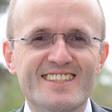Paul Najsarek explains why working together at system and place, with interventions that are local and community focused, is key to success for the years ahead
Striving to improve life for people in our communities is something every council chief executive wants for their area and Ealing is no different.
Sponsored by
But in 2020 what will be the best way to do this faced with a new government, new challenges and opportunities?
In Ealing, over the last four years, we have worked with partners in health to improve outcomes for local people through our Future Ealing programme.
The four pillars of success are integrated health and care; wider determinants of health; lifestyle and behaviours; and place and communities.
Local partners are using new data insights to find people with deteriorating health who are slipping through the net. These residents need a different intervention to be made by one of the system partners – either medical or social.
Over the last four years, we have worked with partners in health to improve outcomes for local people through our Future Ealing programme
In Ealing, we’re aiming to improve the wider determinants of people’s health before they become ill so we can save their physical and mental health pre-emptively.
Working with all our public sector partners in Ealing we’ve used the theory and practice of population health management to prioritise nine areas important to our local communities with a strong emphasis on place.
So far, we’ve increased the number of vulnerable adults we engage with daily but reduced the cost to adult social care by £15,000 a day (or £5 million a year). We’ve also radically improved hospital discharge.
For our looked after children we’ve reduced the number of children needing care and prevented 938 families from becoming homeless.
Also, against the back drop of the London housing crisis and a shortage of genuinely affordable homes for social rent, the council has committed to delivering an extra 2,500 of these sorts of homes by 2022 – making it the largest programme of its kind in the capital.
We’ve had to work really hard with all our partners – including in health – to make it happen. We believe it can be just as important for people’s long-term health and wellbeing to address factors of equality of opportunity so that they can develop their skills, reach their potential and secure a decent well-paid job as it is to have consultants in our hospital or appointments at GP surgeries.
We’ve focused on lifestyles and behaviours, getting people not to smoke and drink and eat more healthily as much as we have worked on providing good services to treat them once they’re sick or deteriorating.
We’ve used the new insights we can get from data across a system to pinpoint local issues across all of our public services allowing us to concentrate more clearly on improved outcomes for our communities.
I feel we’ve made good progress on population health in Ealing but we, like others, have more to do.
If I had a plea for NHS leaders starting the PHM journey in 2020 it’s for systems to focus on outcomes – because if you start with governance and organisations it simply won’t work.
We’ve used the new insights we can get from data across a system to pinpoint local issues across all of our public services allowing us to concentrate more clearly on improved outcomes for our communities
Take time to work with local authority colleagues to understand and focus on your community’s assets; although you’re trying to solve problems, this is about working with what communities have got going for them already.
Be objective as well as subjective to understand people’s lived experience and really consider how it feels to live in their shoes.
Think carefully about investment – because anyone chasing short-term savings won’t succeed. This is a three to four year programme.
While Population Health Management supports systems to start thinking and acting in these new ways as partnerships, we’ve achieved our goals by working hard together and keeping a focus on place.
ICS can improve our ability to do good things on a broader scale but it mustn’t be a top-down diktat because many of our interventions are local and community focused.
My original question was: How can we improve health and life in 2020? The answer is we simply must find a way to work together because we’re doing the same thing.
The NHS is finding people with escalating health problems caused by wider social needs and we’re trying to meet people’s social needs so they don’t find themselves looking for a sticking plaster.
That’s why working together at system and place will be the key to success for the years ahead – let’s make 2020 the year we really collaborate and work together for the health of our communities.
Join the PHM Academy for more information.



























